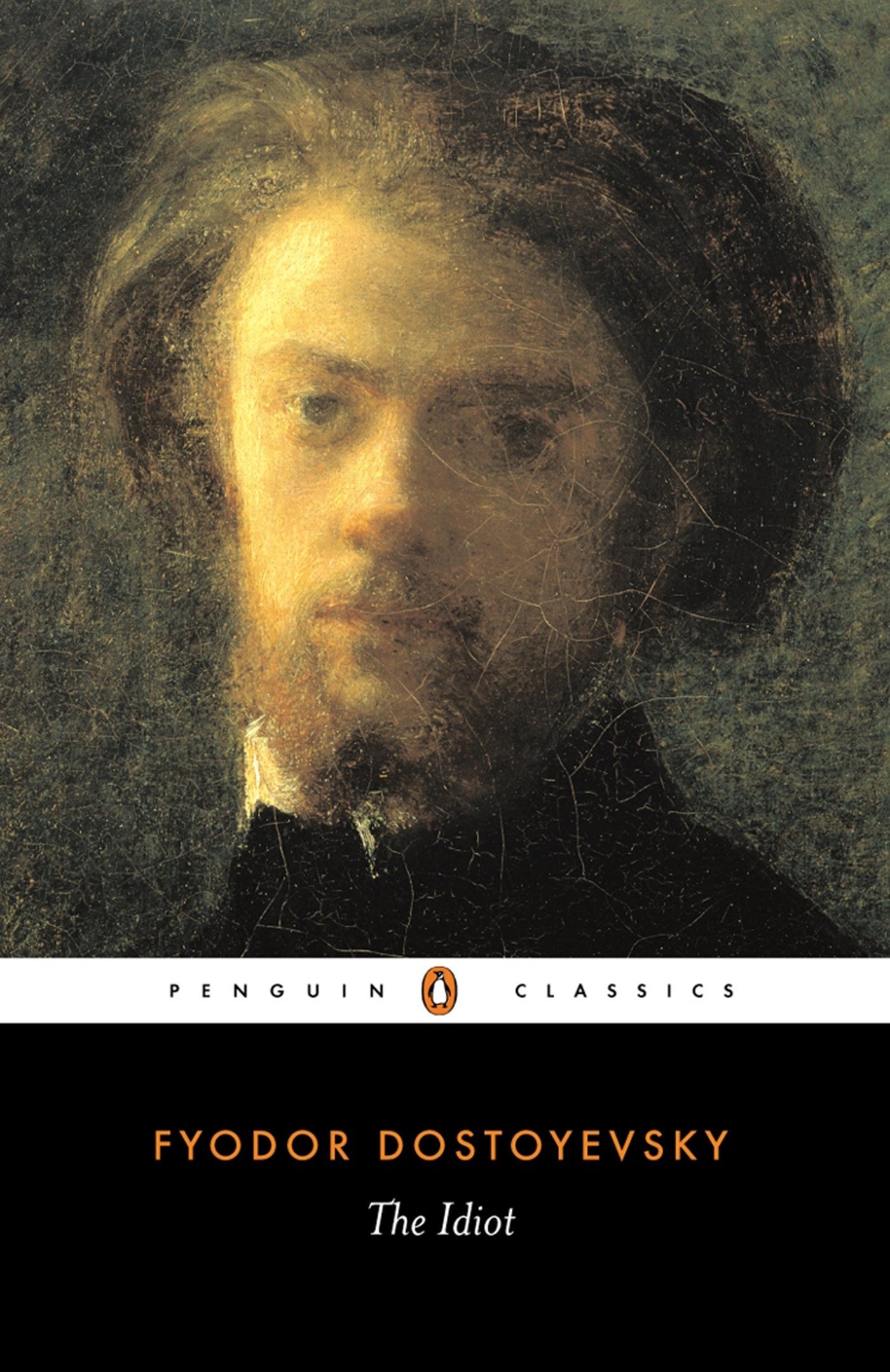
“WHO CONSCIOUSLY THROWS HIMSELF INTO THE WATER OR ONTO THE KNIFE?” In Dostoyevsky’s The Idiot (1869), Prince Myshkin, the idiot of the title, poses this question to Rogozhin, who is in love with Nastasya. The young woman seems to be in love with both the Prince and Rogozhin, though in The Idiot it’s a bit hard to tell who is in love with who, because everyone is falling in love with each other all the time, and no one will ever admit that she or he is in love, except by way of making fun of the idea of being in love or denying being in love. The Prince asks the question because he knows that Nastasya will be killing herself by marrying Rogozhin—the two of them are poisonously incompatible. The worry in The Idiot is that there are really only two authentic ways of existing, being in love and killing yourself. Also: If those are the only real ways of being, what does it mean if you can’t actually choose either of them?
This is one of the lessons of Christ for Dostoyevsky: that to truly love is also to commit complete self-sacrifice, and the complete self-sacrifice we see in Christ is, in a sense, suicide. Dostoyevsky, as is widely known, was an epileptic, and one of the great scenes of The Idiot depicts Prince Myshkin’s seizure, which occurs in a dark stairway, just as Rogozhin is about to plunge a knife into the Prince. The epileptic episode, “sent by God,” saves the Prince from being murdered by Rogozhin. But there’s a terrible price: If the Prince had been murdered, that would have prevented Rogozhin from marrying Nastasya, and therefore prevented Nastasya’s death. (Also, in Dostoyevsky’s subtle psychology, the murder would have extracted all the poison from Rogozhin’s soul.) The Prince’s death would have saved her. Just before the seizure, as he knows it’s coming on, he experiences transcendent bliss, “sublime tranquility, filled with serene, harmonious joy,” even the cessation of time like, as he says, the Prophet Muhammad is said to have experienced eternity, like the end of time is predicted in the book of Revelation. But in the very next instant he encounters a despair that is “unbearable.”
For Dostoyevsky the highest and the lowest occur together, and we cannot choose either of them. Our greatest moments are neither rational nor willed, and they take place beyond the logic of reason and choice. Love, like despair, and like the affirmation of living or dying, is paradoxical. There’s no making sense of these paradoxes because they lie outside the realm of the sensible. Heaven, hell, faith, love, death—these are not things we deliberate over or intend. These states are more like being born—they come first. Knowledge and ignorance, freedom and compulsion, happiness and unhappiness come later, and the contradictions, anxiety, and even madness that they yield animate much of Dostoyevsky’s work. On his account these are what animate all of us.
Part of the terrible frustration of reading The Idiot is watching Prince Myshkin refuse to fall in love with any of the characters who fall in love with him. But this is the challenge that Dostoyevsky dares to raise to Christ, an anticipation of the challenge that his character Ivan will raise again in The Brothers Karamazov, in the famous “Grand Inquisitor” passage: Is the kind of love Christ offers too foreign, too difficult for us to be able to receive it? When the Prince collapses back into silence and idiocy, turning away from life and returning to the sanatorium, probably forever, he commits a kind of suicide. It is a leap, like Kierkegaard’s leap of faith. But it is also an inability to leap. It’s not that he won’t fall in love with Nastasya; it’s that he can’t. It’s not up to him. There are no half measures. It’s all or nothing. And because the Prince can’t fall in love, his only option, in Dostoyevsky’s world, is to retreat into himself. Heaven or hell is what Dostoyevsky has in mind—and his characters have no choice in the matter. His work is often read as a study of extreme types, but for Dostoyevsky this is the truth about life as we are actually experiencing it—it is extreme—although most of us, more moderate and fearful than Christ or the Prince, may spend our whole lives killing time and trying to avoid that recognition.
I began writing about suicide about three years ago, and since then, strangers have been writing to me about their own experiences with the hells of depression, of hope. Some of them have become friends. Recently, one wrote to me at 4 AM, saying that she had been watching videos on how to kill yourself. Later, she wrote saying that she had made up her mind either to kill herself or to move to Las Vegas and try to be a croupier, and that she didn’t think she had much to lose either way. This reminds me of The Idiot: Dostoyevsky’s way of thinking about life is very much a gambler’s view of existence, a kind of waiting to see what the roulette wheel spins up. Heaven in the moment before the fit, and hell in the moment just after; in between is a gap, the first instant we see where the ball has settled, when perhaps we know the truth, but can’t do anything about it.
Clancy Martin is the author of How to Sell (2009) and Love and Lies (2015, both Farrar, Straus and Giroux).
